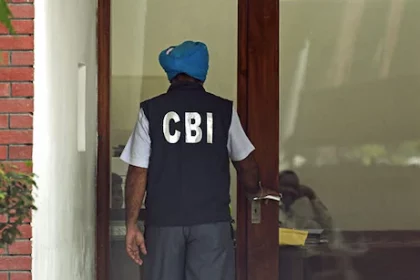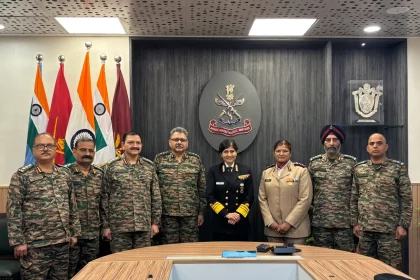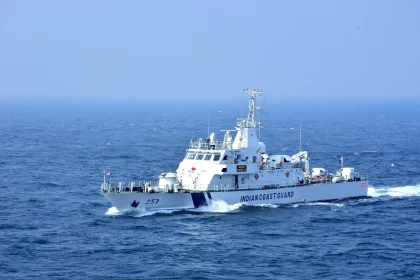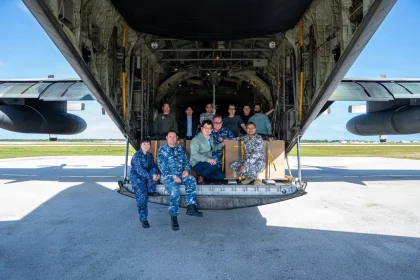CBI Arrests Lt Col Posted in Defence Production Dept in Bribery Case; ₹2.36 Crore Cash Seized
CBI Alleges Corruption Nexus in Defence Procurement; Searches Lead to Major Cash Recovery.
INS Sindhughosh Decommissioned After 40 Years of Distinguished Service
Lead Sindhughosh-Class Submarine Paid Off at Sunset, Marking the End of an Era in India’s Underwater Warfare Legacy.
Surgeon Vice Admiral Arti Sarin Interacts with AMC Officers Superannuating on December 31
Retiring Officers Share Three Decades of Service Experience; DGAFMS Extends Best Wishes for Future Endeavours.
Havildar Abhishek Dwivedi Declared Best Student as Combat Leadership Course Serial 68 Concludes at NCO Academy, Dhana
Lt Gen Arvind Chauhan Addresses Closing Ceremony; NCOs Trained for Future Battlefields.
ICG Commissions GSL-Built New-Generation Fast Patrol Vessel ‘Amulya’
Third Adamya-Class Vessel Inducted, Boosting Indigenous Shipbuilding and Coastal Security.
QUAD Concludes First Field Training Exercise to Strengthen Indo-Pacific Logistics Network
Exercise Enhances Quad Interoperability and Disaster Response Capabilities Across the Indo-Pacific.






